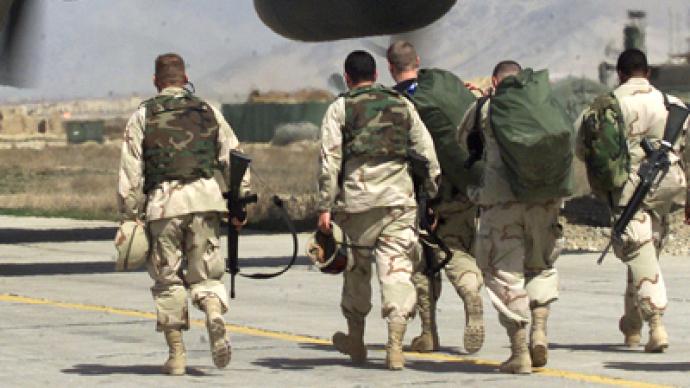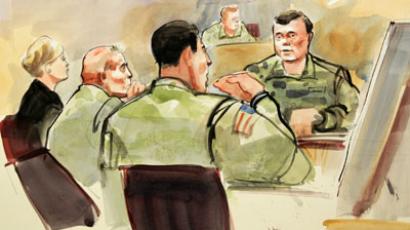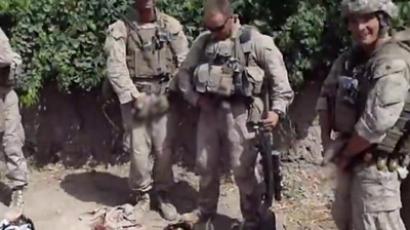White House weighing full withdrawal from Afghanistan next year

White House officials said Tuesday that they were considering a full pull-out from Afghanistan once the NATO combat mission there finishes next year. It comes ahead of a Friday meeting between the two countries' presidents.
It was the first time Washington had publicly said it was weighing a zero-troop presence in Afghanistan any time in the near future, and goes against statements by Pentagon officials, who advocate leaving a thousands-strong American force in the country to train local army and law enforcement and keep Al-Qaeda under control. At different points in time, the Obama administration has made various estimates regarding what it might do following the end of the NATO mission in Afghanistan. One option was to leave a residual troop presence as small as 3,000, with another option leaving as many as 15,000 depending on various factors and military goals. “The US does not have an inherent objective of ‘X’ number of troops in Afghanistan,” said deputy national security adviser Ben Rhodes.There are currently 66,000 US troops in Afghanistan, down from the all-time high of roughly 100,000 in 2010. In response to a journalist's question over whether zero troops would be an option, Rhodes said it was something the Obama administration "would consider."The statement comes three days before Afghan President Hamid Karzai is set to visit the White House to meet with US President Barack Obama. The leaders are expected to discuss their partnership following troop withdrawals in 2014, but they are known to disagree over several other issues likely to come to the table. One is the American demand that US troops remaining in Afghanistan after combat comes to a close would be immune to prosecution there. With Karzai resisting this demand, the White House has been trying to trade troop immunity for a stabilizing post-2014 US presence.White House military advisor Doug Lute told reporters Tuesday that Kabul would have no choice but to allow US forces certain "authorities" if it wanted them to stay and help law enforcement. The comment was taken to be referring to the immunity issue.“As we know from our Iraq experience, if there are no authorities granted by the sovereign state, then there’s not room for a follow-on US military mission,” he continued, referring to Iraq's 2011 refusal to grant US troops immunity from the law that resulted in a full American pull-out from that country.














